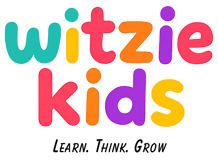Why Hygiene Matters: Helping Kids Stay Safe and Healthy
Good hygiene is one of the simplest yet most powerful ways to protect children from illness and keep them feeling their best. This article explores essential hygiene habits every child should learn—like handwashing, dental care, and proper toilet use—and explains why these daily routines are vital for staying safe, healthy, and happy. Backed by expert advice from doctors and global health organizations like UNICEF and WHO, this guide offers parents and educators practical tips to help kids build lifelong healthy habits.
6/12/20251 min read


🌟 Complete Hygiene & Health Guide for Kids
Based on Doctor and UN (UNICEF/WHO) Recommendations
🧼 1. Personal Hygiene Habits
Handwashing with soap and water for at least 20 seconds.
Brushing teeth twice daily.
Bathing regularly (daily).
Changing clothes daily.
Trimming nails weekly.
Washing hair 1–3 times a week.
🚽 2. Toilet Hygiene – Including Western-Style Toilets
✅ General Toilet Hygiene:
Always use the toilet to urinate or defecate—never outdoors or in open spaces.
Flush the toilet after use.
Wash hands thoroughly with soap after every use.
Keep toilet areas clean and dry.
🚻 About Western-Style Toilets:
These are sitting toilets commonly used in homes and public places in many parts of the world.
Children should learn:
How to sit properly and avoid touching the seat.
Not to stand on the toilet seat.
How to flush and use toilet paper or water for cleaning.
To close the lid before flushing to reduce germ spread.
⚠️ Western-style toilets are not recommended for young children or in areas with poor sanitation management, as they may pose hygiene and safety challenges (e.g., improper use, difficulty cleaning, lack of water-based cleaning practices). Squatting toilets are often preferred in many regions due to better posture for complete elimination and ease of cleaning.
🔹 UNICEF promotes access to safe, clean, age-appropriate toilets in all schools, regardless of style, with hygiene education tailored to local needs.
🚫 Common Mistakes to Avoid:
Flushing without washing hands.
Touching dirty surfaces and then touching the face.
🔹 UNICEF promotes clean, private, safe toilet access for children at home and in schools, including training in proper toilet use.
🔹 WHO encourages “WASH in schools” programs, which include proper use of both squat and Western toilets, especially as Western toilets become more common globally.
🏥 3. Health Monitoring
Visit the doctor and dentist regularly.
Get all required vaccinations.
Stay home and rest when feeling sick.
Take medicine only with a doctor’s advice.
🚰 4. Environmental & Community Hygiene
Use clean toilets at school and public places.
Don’t litter or spit in public.
Cover your mouth when sneezing/coughing.
Dispose of used tissues properly.
Help keep your school, home, and neighborhood clean.


